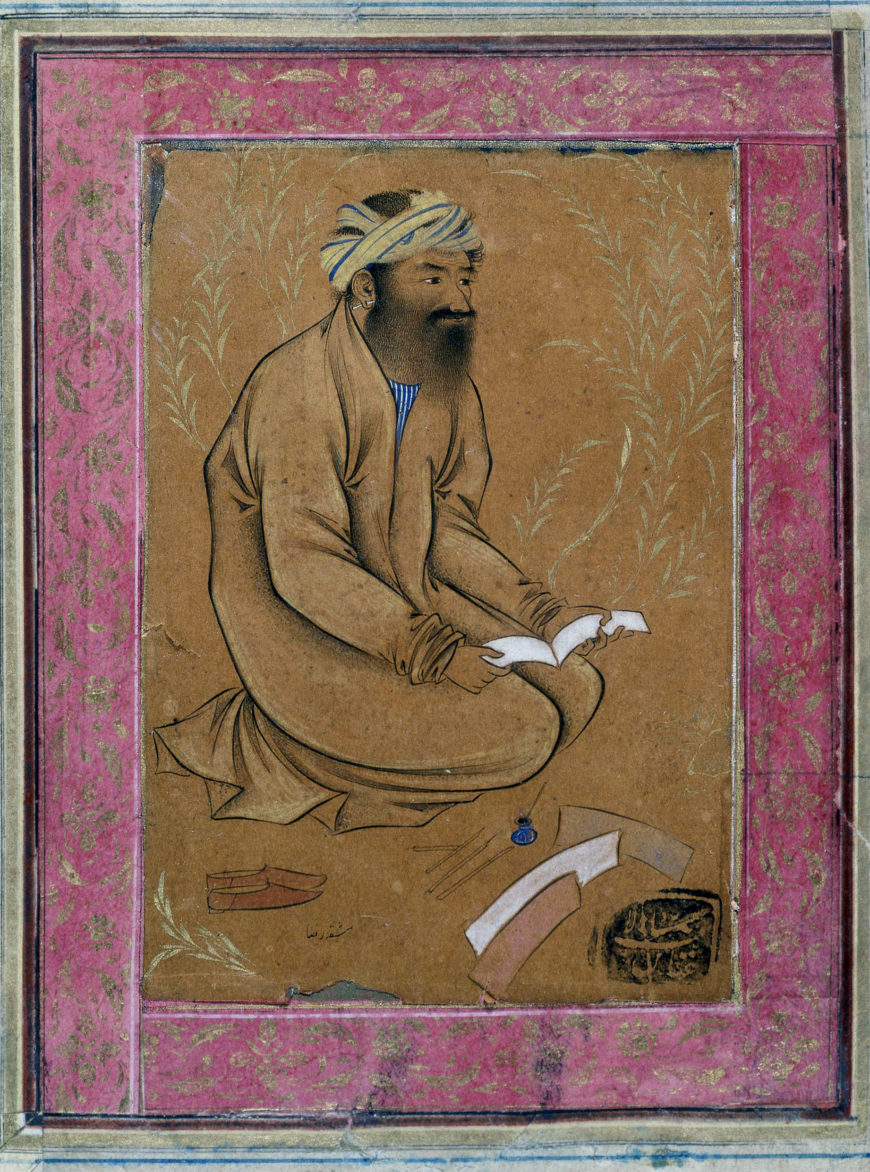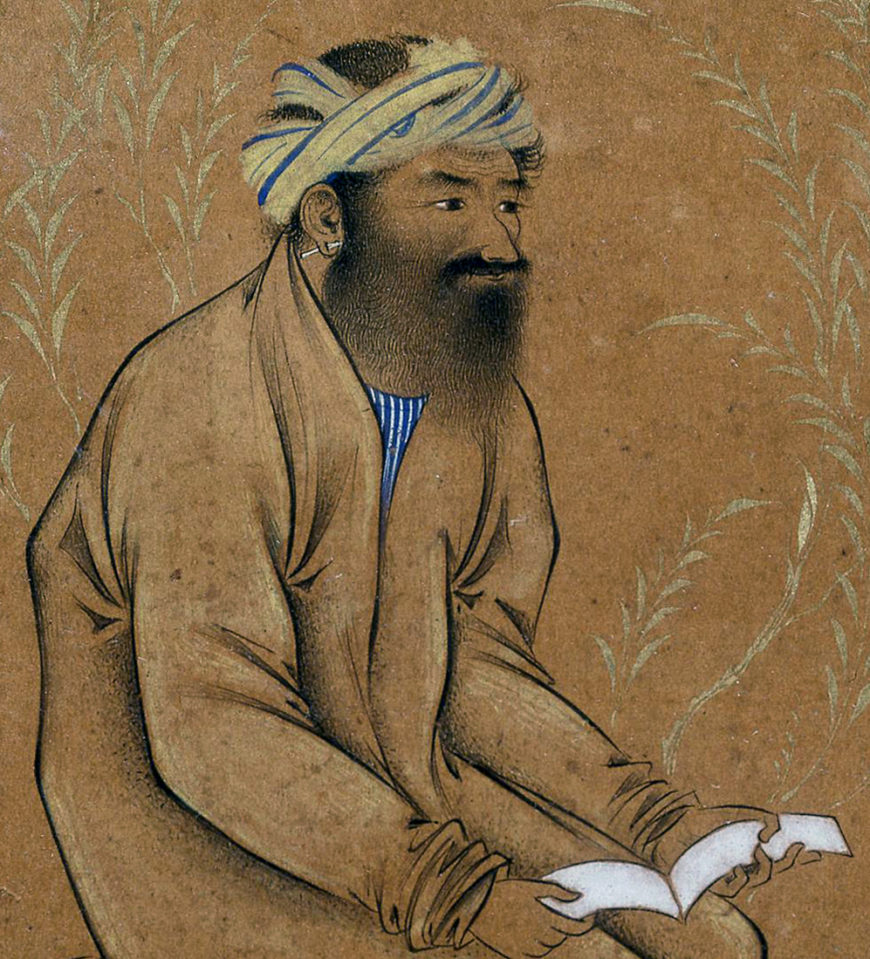
Riza-yi ʿAbbasi, Seated calligrapher, c. 1600, drawing, from Isfahan, Iran (© The Trustees of the British Museum)
‘In this age, he has no rival; master painters, skillful artists who live in our times regard him as perfect.’ Qadi Ahmad, 1606
A bearded man sits on the ground, holding a blank book in his hand. The tools lying around him—pens, ink and paper—show that he is a calligrapher. He smiles faintly, and gazes into the distance. The draughtsmanship is simple and suitably calligraphic. The gold leafy ‘background’ against the bare colored paper is similar to the gilt-decorated margins of illustrated manuscripts typical of this period.

Riza-yi ʿAbbasi, Seated calligrapher (detail), c. 1600, drawing, from Isfahan, Iran (© The Trustees of the British Museum)
This drawing has been signed by the celebrated Persian artist Riza-yi ʿAbbasi (died 1635), who worked at the courts of Shah ʿAbbas I (reigned 1588-1629) and his successor Shah Safi I (reigned 1629–42). Riza-yi ʿAbbasi is famous for his drawings of individual or paired figures on single pages, but he also contributed paintings to illustrated manuscripts. He was so admired by Shah ʿAbbas that in 1603 Riza was granted the honor of carrying the title ʿAbbasi to demonstrate his position in the Shah’s favor. This drawing was completed a few years before he received this honor, although the presence of the Shah’s royal seal (in the bottom right corner) suggests that ʿAbbas already enjoyed the artist’s work.
Respect for Riza-yi ʿAbbasi’s work was widespread in seventeenth-century Iran, and the strong influence of his style continued long after his death.
© The Trustees of the British Museum

